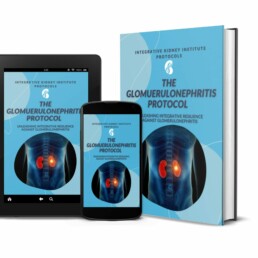We combed through multiple medical journals looking for the latest research on the Integrative approach to kidney health. We know your time is valuable, so we curated and summarized these studies for you. Welcome to the InKidney July Research and News.
July Research and New
Sleep Tight, Kidney Right: Unveiling the Link between Extended Sleep, Leg Restlessness, and Chronic Kidney Disease
This study investigated the link between sleep patterns and Chronic Kidney Disease (CKD) among the Iranian-Kurdish community. The cross-sectional research involved 9,766 participants, with an average age of 47.33 years, and was evenly split between men and women.
The analysis found that CKD was present in 10.83% of the individuals. The time taken to fall asleep and instances of dozing off during the day were both found to be significantly higher in the non-CKD group. In females with CKD, daytime napping and dozing off were more prevalent than in males with CKD.
After adjusting for various factors, a longer sleep duration (> 8 hours/day) was associated with a 28% higher likelihood of CKD compared to a normal sleep duration (7 hours/day). Additionally, participants who reported experiencing leg restlessness had a 32% higher chance of developing CKD.
The study concluded that there might be a link between sleep duration and leg restlessness with CKD, suggesting the regulation of sleep patterns could potentially aid in preventing CKD.
Why is this important?
These findings shed new light on the potential role that sleep regulation could play in CKD prevention and management.
Join us to end the kidney disease epidemic and receive the FREE Report “5 Pitfalls to Avoid When Caring for Kidney Patients”
Unraveling the Genetic Enigma: Genome-Wide Study Sheds Light on Chronic Kidney Disease Progression
This study conducted a meta-analysis of genome-wide association studies to understand the genetic aspects influencing the progression of Chronic Kidney Disease (CKD). The study involved 116,870 individuals with CKD from the Million Veteran Program and Vanderbilt University Medical Center’s DNA biobank.
The analysis primarily focused on the annualized relative slope in outpatient estimated glomerular filtration rate (eGFR), stratified by race/ethnicity and diabetes status.
The study’s key findings include identifying the strongest association with the rs77924615 variant near UMOD/PDILT, where each copy of the G allele correlated with a 0.30%/year faster eGFR decline. An association was also observed within BICC1 (rs11592748), where every additional minor allele was linked with a 0.13%/year slower eGFR decline.
In individuals without diabetes, the UMOD/PDILT variant rs36060036 was associated with a 0.27%/year faster eGFR decline per copy of the C allele. In Black participants, faster eGFR decline was associated with variant rs16996674 near APOL1; in Black participants with diabetes, the lead variant rs11624911 near HEATR4 also showed a significantly faster eGFR decline.
Why is this important?
This study is noteworthy as it deepens our understanding of the genetic factors involved in the progression of chronic kidney disease (CKD). The information may be instrumental in the development of innovative therapeutic strategies for CKD. Furthermore, the study underlines the importance of personalized medicine, considering the varying genetic factors associated with eGFR decline in patients of different racial/ethnic groups and those with/without diabetes.
However, until testing for these variants is commercially available, these results remain limited to research. It is relevant to mention that Natera’s Renasight genetic test can identify genetic variants in UMOD and APOL1 genes.
Unmasking Urine Secrets: New Study Identifies Urinary Metabolites as Indicators of Chronic Kidney Disease Progression
In this study, the research team sought to uncover potential biomarkers for chronic kidney disease (CKD) progression by analyzing the metabolites in urine samples. These samples were collected from 789 CKD patients at the time of kidney biopsy and from 147 healthy subjects.
The study aimed to identify markers signaling a 30% decline in estimated glomerular filtration rate (eGFR), a doubling of serum creatinine levels, or the onset of end-stage kidney disease.
The researchers identified seven metabolites that showed a clear distinction between healthy individuals and those with stage 1 CKD, as well as a consistent change in pattern from healthy to advanced-stage CKD patients. These metabolites were betaine, choline, glucose, fumarate, and citrate.
These metabolites remained significantly associated with the composite outcome even after adjusting for factors like age, sex, eGFR, the urine protein-creatinine ratio, and diabetes. When these metabolites were added to traditional biomarkers such as eGFR and proteinuria, they significantly enhanced the ability to predict the composite outcome.
Why is this important?
These urinary metabolites not only differentiate healthy individuals from early-stage CKD patients but also exhibit consistent pattern changes in advanced-stage CKD patients. The ability of these metabolites to predict CKD progression significantly improves when combined with traditional biomarkers.
Therefore, these findings could enable early intervention, help monitor disease progression, and potentially guide therapeutic strategies, thereby enhancing the overall management of CKD.
The Power of Ancient Remedies: Chinese Medicine Rehmannia-6 Shows Potential to Stabilize Kidney Function in Diabetic Patients
This study sought to evaluate the real-world effectiveness of Rehmannia-6-based Chinese medicine on the progression of chronic kidney disease (CKD) in patients with type 2 diabetes and severely increased albuminuria. Diabetes is a leading cause of CKD and kidney failure.
In this multi-center trial, 148 adult patients with type 2 diabetes, an estimated glomerular filtration rate (eGFR) of 30-90 ml/min/1.73m2, and a urinary albumin-to-creatinine ratio (UACR) of 300-5000 mg/g were randomized to either a 48-week add-on protocolized Chinese medicine treatment program (using Rehmannia-6-based formulations) or standard care alone.
The primary outcomes measured were the rate of change in eGFR and UACR between the beginning of the study and the endpoint (48 weeks later). Secondary outcomes included safety and changes in biochemistry, biomarkers, and concomitant drug use.
The results indicated that the estimated rate of change in eGFR was slower in participants treated with the add-on Rehmannia (-2.0 ml/min/1.73m2) compared to those receiving standard care alone (-4.7 ml/min/1.73m2), suggesting a less severe decline with this herb. However, the difference in the rate of change in UACR did not reach statistical significance.
Why is this important?
The study concluded that Rehmannia-6-based Chinese medicine treatment could stabilize eGFR over a 48-week period in patients with type 2 diabetes, stage 2 to 3 chronic kidney disease, and severely increased albuminuria, offering a promising adjunctive therapy.
The Rehmannia-6 preparation contained: Radix-Rehmanniae-Praeparata 15 g/d, Fructus-Corni 7.7 g/d, Rhizoma-Dioscoreae 7.7 g/d, Poria 5.8 g/d, Cortex-Moutan 5.8 g/d, and Rhizoma-Alismatis 5.8 g/d.
Join here to receive FREE monthly updates on the latest research in Integrative Nephrology and tips on managing kidney disease straight to your inbox.
We would love to hear your feedback. Let us know what you think of these educational materials and if you like us to focus on specific topics. Please email us at info@inkidney.com.






